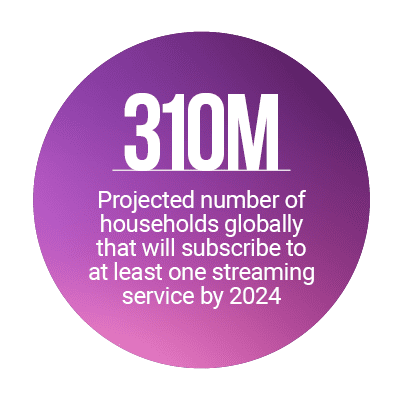How Scribd Turns The Page On eBook Subscription Fatigue

Not long ago, subscriptions services were simply novelty services delivering fun, new products — from meal kits to fashion accessories to men’s grooming products — right to consumers’ doorsteps. Today, however, subscription services are considerably more than just novelties, and are on track to drive over $528.8 billion in overall spend by next year.
This edition of the “Subscription Commerce Tracker™” highlights the latest developments in the subscription market, including why some content platforms are fighting consumer fatigue by shifting away from plan limits while embracing bundled services.
Notable Headlines from the Space
A pair of major tech companies appear to be ready to venture into subscription-based video gaming.
Online retail giant Amazon is reportedly developing a cloud-based video game streaming service, which will allow users to access video games from their smartphones instead of through a gaming console or computer. The service could offer users on-demand access to popular video games, and could prove to be as disruptive to the gaming market as Netflix was for movies, or as Spotify was for music.
 Fellow tech giant Apple, meanwhile, is also considering its own video game venture, with a video game subscription plan that would allow users to access a library of games for a monthly fee.
Fellow tech giant Apple, meanwhile, is also considering its own video game venture, with a video game subscription plan that would allow users to access a library of games for a monthly fee.
It’s not just the digital world where new subscription ventures are being tested, though. In the physical market, clothing rental service Gwynnie Bee is expanding its offerings by adding plus-sized clothing options from designer Shoshanna Gruss. With designs available at 400 retail outlets, including smaller boutiques and major retailers like Amazon, Gruss said she sees an opportunity to offer plus-sized designs through subscriptions.
Deep Dive: Subscriptions Work the Runway
The digital clothing rental market has grown significantly, as shoppers seek a more flexible approach to trying clothes before purchasing. By some accounts, the clothing subscription and rental market is on track to reach $1.85 billion by 2023 — but not every subscription fashion venture will be successful. Just as it can hit streaming services or the meal-kit market, subscription fatigue can cause a fashion rental service to fold. This month’s Tracker includes a Deep Dive on the fashion subscription market and the unique set of challenges it faces.
Scribd Starts A New Chapter On Subscription Plan Limits
Reinvigorating the thrill of discovery is one way subscription-based businesses can prevent subscribers from tiring of the service. Yet, reaching the end limit of literary subscription services is a problem that often bothers subscribers.
In an effort to do away with this type of friction, eBook platform Scribd started allowing subscribers unlimited access to its catalog last year. In the February feature story, Scribd CEO Trip Adler explained the decision to eliminate plan limits, and how bundling services is helping the company to boost its retention efforts.
About the Tracker
The “Subscription Commerce Tracker™,” powered by Recurly, explores how companies use subscription-based commerce to build long-term customer relationships and steady revenue sources. The report includes notable developments in the market and the companies that are rapidly innovating the space.
